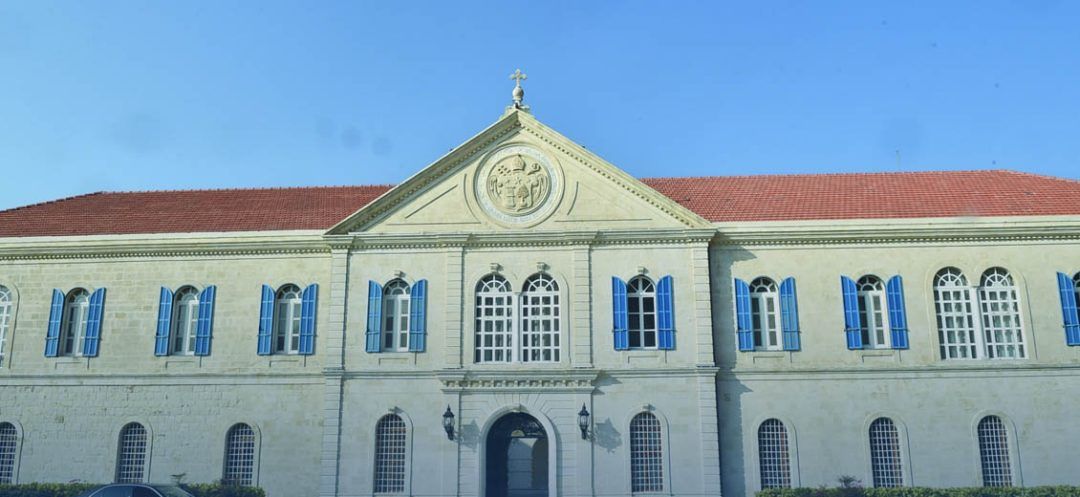
The Maronite bishop of Antelias, Antoine Abou Najem, explained that the Patriarchate's initiative would include everyone and would, therefore, take place in two stages.
“The first stage will include Christian political forces, after which, in a second stage, the dialogue will be extended to all spiritual leaders, Lebanese political authorities, and the driving forces of civil society,” he announced in a press release on the day after the meeting of Christian party representatives in Bkerke.
Mandated by the Maronite Patriarch, Bechara al-Rai, Abou Najem played the role of facilitator, bringing together the point of view of the Christian forces “first” around a common document and within the framework of the Bkerke initiative.
In the press release, he stressed that the meetings being held to draw up a national roadmap “can only take place in the context of a national consensus,” confirming the basis on which Lebanon was founded, for the salvation of the country.
For Abou Najem, the difficult stage Lebanon is going through “requires all Lebanese to rally around the founding values of the Lebanese state, which are freedom, justice, coexistence, and complete sovereignty, through the application of the Constitution, the revitalization of constitutional institutions, and the implementation of reforms.”
He persisted in saying that his mission was not only to launch a consultative process but also to diagnose dysfunctions and propose a roadmap for possible solutions.
He pointed out that Bkerke's initiative was launched over a year ago and is being followed up by a task force specializing in constitutional, legal, and political issues.
“This team has no political bias and is united with all those who have at heart the salvation of the country,” he said. He also deplored “the media leaks, which do not correspond, for the most part, to the spirit and content of the current initiative.”
Archbishop Abou Najem urged participants to remain discreet about the steps and debates underway “to ensure the success of the patriarchal initiative.”
“The first stage will include Christian political forces, after which, in a second stage, the dialogue will be extended to all spiritual leaders, Lebanese political authorities, and the driving forces of civil society,” he announced in a press release on the day after the meeting of Christian party representatives in Bkerke.
Mandated by the Maronite Patriarch, Bechara al-Rai, Abou Najem played the role of facilitator, bringing together the point of view of the Christian forces “first” around a common document and within the framework of the Bkerke initiative.
In the press release, he stressed that the meetings being held to draw up a national roadmap “can only take place in the context of a national consensus,” confirming the basis on which Lebanon was founded, for the salvation of the country.
For Abou Najem, the difficult stage Lebanon is going through “requires all Lebanese to rally around the founding values of the Lebanese state, which are freedom, justice, coexistence, and complete sovereignty, through the application of the Constitution, the revitalization of constitutional institutions, and the implementation of reforms.”
He persisted in saying that his mission was not only to launch a consultative process but also to diagnose dysfunctions and propose a roadmap for possible solutions.
He pointed out that Bkerke's initiative was launched over a year ago and is being followed up by a task force specializing in constitutional, legal, and political issues.
“This team has no political bias and is united with all those who have at heart the salvation of the country,” he said. He also deplored “the media leaks, which do not correspond, for the most part, to the spirit and content of the current initiative.”
Archbishop Abou Najem urged participants to remain discreet about the steps and debates underway “to ensure the success of the patriarchal initiative.”
Read more



Comments